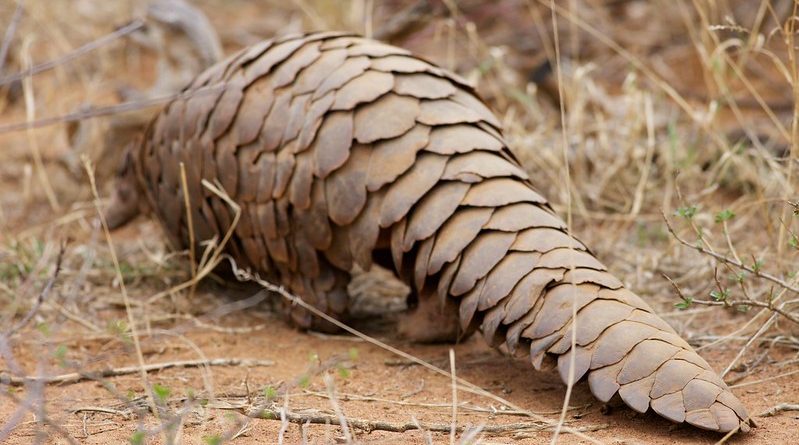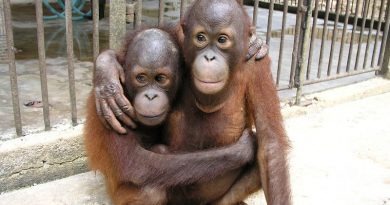You’ve Probably Never Heard Of The World’s Most Trafficked Animal
Pangolins, otherwise known as ‘scaly anteaters’, are mammals belonging to the Pholidota family which are native to Africa and Asia. There are eight different species of Pangolin, spread evenly with 4 being native to Asia, and 4 being native to Africa.
Pangolins are covered in large keratin scales (similar to human fingernails) which serves as protective Armour against predators. They are the only known mammal with this feature, and when attacked they roll up into a ball to protect their soft bellies! They also walk on their back legs and hold their arms out much like a T-Rex! Pangolins are nocturnal creatures that eat small insects, mostly ants.
As useful as these features may be against predators in their natural habitat, none of them protect these cute (if slightly strange looking) animals from human foul-play. Pangolins, in fact, take the top spot for the world’s most trafficked and poached animal.
The International Union for Conservation of Nature and Natural Resources (ICUN) have listed two out of the eight species as critically endangered on the Red List of Threatened Species, and all eight are protected under international laws.
However, all of this ‘protection’ has proved somewhat useless. According to the World Wide Fund For Nature (WWF), over the past decade, over a million pangolins have been illegally transported on the black market in China and Vietnam.
In Vietnam their meat is considered a delicacy, while their scales are used in both traditional Chinese medicine and African spiritual belief use and medicine. According to the Telegraph, the scales can cost more than $3,000/kg on the black market.
Reports of traffickers being intercepted are becoming more and more prevalent in the news, and authorities have been making it clear that poachers will not be tolerated. Organisations such as SavePangolins hope to raise awareness of their endangered status and help put a stop to the illegal movement of the animal. Intercepting the traffickers and therefore the supply of Pangolins to the nations demanding them is the immediately important issue to animal groups, but campaigners and authorities recognise that the demand for them must also be addressed and reduced to stop these creatures from becoming extinct.
Nobody knows exactly how many Pangolins are left in the wild, but experts are concerned that the number is shrinking fast. Fortunately, these concerns are translating into greater awareness of the otherwise unfamiliar Pangolin species’, and a greater number of individuals, groups and even governmental organisation are interested in their survival. Many scientists take this as a cause for optimism.
More information
Organisation: Save Pangolins
Organisation: Zoological Society of London (ZSL)
Main Image: Ground Pangolin at Madikwe Game Reserve in South Africa, David Brossard, Flickr Creative Commons
By Sofi Pickering





